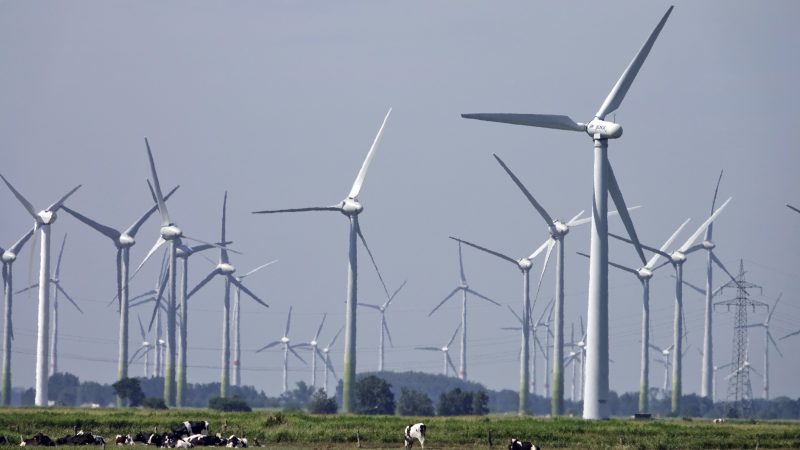December 15, 2021
Hope Oladipo
The 26th United Nations Climate Change Conference (COP26) was held in Glasgow and concluded on November 13, 2021. The mission of this meeting between 190 countries around the globe was to create a global consensus on the ways in which countries could combat climate change. One of the COP26 objectives is to limit increases in global warming to 1.5oC. To meet this goal, participating countries proposed and agreed that it was necessary to reduce the use of coal and other fossil fuels. The European Union has already begun the process of replacing its non-renewable energy sources with more sustainable options. And while this action is in line with their desire to mitigate the effects of climate change, recent changes in energy supply lines are putting their environmental commitments to the test. During the COVID-19 pandemic there was a decrease in the amount of energy used in day-to-day life in member states. But the end of lockdown has caused an energy usage spike that current supply lines can’t keep pace with. This has led to an increase in energy prices for citizens and shortages. To help relieve the effects of the current energy crisis, the block has been employing short-term actions to relieve the current burdens on their citizens (European Commission 2021).
On an individual basis, countries are trying to stabilize prices for their citizens by issuing subsidies and cutting taxes (Chadwick 2021). The EU has also been looking to import gas from different markets. The search is made necessary due to the fact that natural gas production within the bloc is decreasing and their natural gas storage is low. Much of their supply comes from Russia (43.4% in 2020) but even with other foreign imports they aren’t receiving enough supplies to meet demand. This shortage came about for a couple of reasons. First, there has been a rise in the cost of natural gas since the end of lockdown. The inflation rate within the energy sector has risen to 17.4% within the eurozone alone and natural gas prices are six times higher than they were this time last year. Second, China is also in an energy crisis due to recent flooding so they have doubled their imports. But the Asian country isn’t the only one running into climate change complications. Europe is experiencing higher temperatures and flooding, which has increased its own demand for energy consumption. With so many states experiencing the effects of climate change, this leaves less natural gas on the market for Europe to fulfill its own needs. And the issue will only be exacerbated come winter with its necessity for heat (Cohen 2021)(Chadwick 2021).
One of the reasons for the EU’s inability to handle this energy crisis is the EU’s transition to more sustainable energy practices. Due to the commitment to progress on the bloc’s green initiatives, many of the Union’s member countries are unwilling to buy long-term energy contracts. Although these would supply a steady amount of energy needed for each country’s day to day operations for a set period of time, states are remaining steadfast to their goal of achieving carbon neutrality. This has led them to buy non-sustainable energy on an as needed basis. However, this purchasing pattern has left them unprepared as the energy crisis continues to intensify. A takeaway from recent events is that the bloc’s transition to green energy policies might have been undertaken too fast. Additionally, these sustainable sources are also being critiqued because they are seen as unreliable due to the shifts in weather patterns. For example, there has been an increase in cloud cover and a reduction in wind speeds. The less than favorable weather patterns and the lack of baseload generation[1] only fuels current energy issues (Cohen 2021).
As a possible solution, France has proposed the use of nuclear energy as a more reliable form of sustainable energy. They believe the nuclear alternative would decrease the EU’s use of natural gas and dependence on foreign imports. These discussions are crucial as the 27-member bloc remains steadfast in its mission to reduce its carbon emissions by at least 55% by 2030 (Amaro 2021). They believe that renewable energy is a long-term solution to both the energy crisis and climate change. However, the current energy crisis may require the employ of a non-renewable, short-term response.
[1] The minimal amount of energy needed to be supplied to an electrical grid at any given time (Merriam Webster 2021).
Further Reading
Azimov, Aliyar “EUROPEAN ENERGY POLICY AND THE EU- AZERBAIJAN ENERGY COOPERATION”. Journal of Comparative Politics. 2021.
Huber, Robert A. (2021) “Is populism a challenge to European energy and climate policy? Empirical evidence across varieties of populism,” Journal of European Public Policy, 28:7,998-1017
Midttun, Alte, and Proadpran Boonprasurd Piccini. “Facing the Climate and Digital Challenge: European Energy Industry from Boom to Crisis and Transformation.” Energy Policy, Elsevier, 9 June 2017.
Reference List
Amaro, Silvia. “France Pushing to Strengthen EU’s Energy Independence as Gas Prices Soar.” CNBC, CNBC, 5 Oct. 2021, www.cnbc.com/2021/10/04/france-pushing-to-strengthen-eus-energy-independence-as-gas-prices-soar.html
Chadwick, Lauren. “Five Charts to Explain Europe’s Energy Price Crisis.” Euronews, 25 Oct. 2021, www.euronews.com/2021/10/25/europe-s-energy-crisis-five-charts-to-explain-why-your-bills-might-go-up-this-winter
Cohen, Ariel. “Europe’s Self-Inflicted Energy Crisis.” Forbes, Forbes Magazine, 10 Dec. 2021, www.forbes.com/sites/arielcohen/2021/10/14/europes-self-inflicted-energy-crisis/?sh=594341152af3
Person, and Mark John Kate Abnett. “’Put a Price on Carbon, Nature Cannot Pay’: Eu Urges COP26.” Reuters, Thomson Reuters, 1 Nov. 2021, www.reuters.com/business/environment/put-price-carbon-eus-von-der-leyen-urges-world-leaders-2021-11-01/
“Press Corner.” European Commission – European Commission, ec.europa.eu/commission/presscorner/detail/en/ip_21_6021
Merriam-Webster. “Baseload” https://www.merriam-webster.com/dictionary/baseload.
